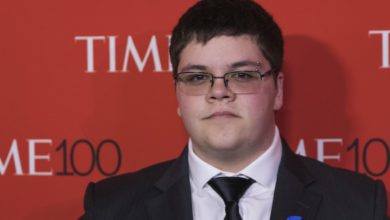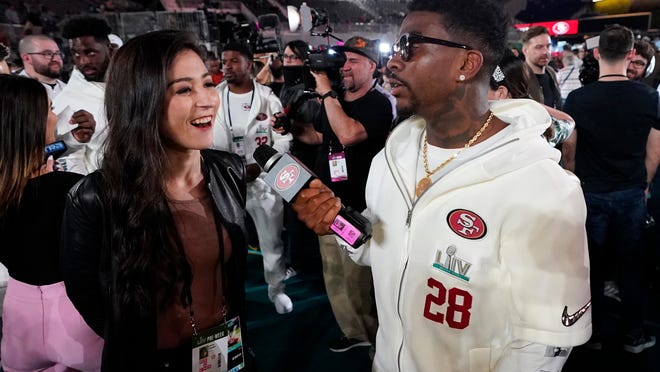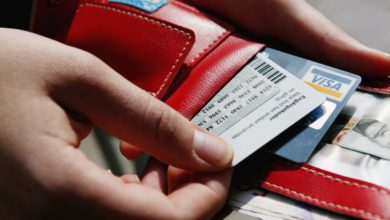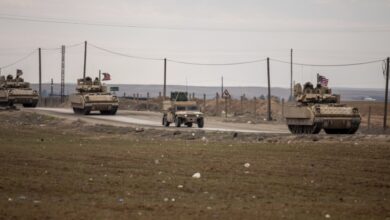
WASHINGTON – White House Press Secretary Jen Psaki said Thursday that the White House was in a "very early stage call" with Nicki Minaj's staff after a tweet from the rapper alleging the COVID-19 vaccine causes impotence went viral, and added that the White House hopes celebrities share "accurate information" on the vaccine.
"We offered a call with Nicki Minaj and one of our doctors to answer questions she had about the safety and effectiveness of the vaccine," Psaki said. "This is pretty standard and something we do all the time."
Responding to a tweet from a fan saying that Minaj should speak at the United Nation's General Assembly after her tweets about the vaccine, the Trinidadian-born rapper tweeted Wednesday that “the White House has invited me” and "yes, I'm going." The White House said after her tweet that the rapper was just offered a call.
Earlier this week, Minaj tweeted that the Met Gala required attendees to be vaccinated and she wouldn't get the shot until “I feel I’ve done enough research.” Minaj, who has more than 22.7 million followers on Twitter, also tweeted an unverified story about her cousin's friend in Trinidad. She claimed that the friend “became impotent” and “his testicles became swollen” after receiving the COVID-19 shot.
More:Fencing returns to Capitol ahead of right-wing rally. What we know about 'Justice for J6' protest
Terrence Deyalsingh, the Minister of Health of Trinidad and Tobago shut down Minaj's claims during a Wednesday press conference, saying that officials "wasted so much time yesterday running down this false claim.
"There is absolutely no reported such side effect or adverse event of testicular swelling in Trinidad," Deyalsingh said.
When asked what responsibilities celebrities like Minaj have when talking about the vaccine, Psaki said "our hope is that anyone who has a big platform is going to project accurate information about the effectiveness of the vaccine, the safety of the vaccine and the availability of the vaccine."
Psaki, however, noted that the individuals still have questions about the vaccine and the White House wants to offer resources to those who want to know more.
"We also recognize that people have questions out there," Psaki said. "They have questions they want to have answered by their doctors. We have doctors who can answer questions, and this is something, again, in our outreach to celebrities."
The Biden Administration has previously turned to influencers and celebrities to help combat vaccine misinformation and increase the vaccination rate among younger individuals. Earlier this year, singer Olivia Rodrigo visited the White House as part of that outreach.
When asked why the White House has not tried to invite Minaj to the White House for a conversation, Psaki noted that sometimes the administration isn’t the “right platform or the right voice” to have these discussions. Minaj has a devoted following of fans known as Barbz.
“We are not always the right platform or the right voice right. Sometimes that's because people may not like the president, and they may not have voted for him, and that's okay,” Psaki said.
Contributing: Cydney Henderson, USA TODAY; Associated Press
Reach Rebecca Morin at Twitter @RebeccaMorin_
Source link








